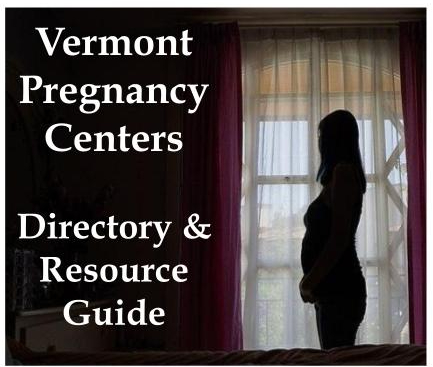
By John McClaughry
This year and the ensuing biennium are likely to be landmark years for the future of parental choice in education in Vermont.
In June 2020 the U.S. Supreme Court ruled in Espinoza v. Montana that if a State offers education tax credits, it must offer them to students choosing sectarian schools as well as public schools. The Court said that excluding sectarian schools burdened the plaintiffs’ right to the free exercise of their religion. That ruling triggered at least three similar cases by Vermont plaintiffs seeking to use state tax dollars to benefit their children in independent and sectarian schools.

The Valente case argues that parents in tuition towns (Mt. Holly) should be able to have their school districts pay their children’s tuition directly to a religious school (Mt. St. Joseph Academy). Last month parents filed another suit (Williams) to require Barstow Unified Union District to pay tuition for two children attending the same Roman Catholic school.
Another case from Glover argues that if any student is allowed to take school district tuition funding to a sectarian school, then all students, not just tuition town students, should also enjoy that “common benefit”. Meanwhile, a very similar case (Carson v. Makin) has made its way from Maine to the U.S. Supreme Court, which held oral argument in December.
But the government school lobby is urging the legislature to put a stop to what could be a costly hemorrhage of students – and money – out of public schools. The four defenders of government schooling are the Vermont School Boards Association, Vermont Superintendents Association, Vermont Principals Association, and the Vermont NEA teachers’ union. Their February 23 joint letter to the Senate Education Committee sets out their argument that expanding parental choice brings “a morass of complicated legal and logistical questions.” Their central message comes through loud and clear: Forget funding of children. “Fund only public schools”.
The lobby groups anchor their case by saying that the State must give all students an “equitable, quality education in order to keep democracy thriving.” They believe that only government schools can deliver equitable, quality education. If parental choice is (regrettably) forced by the courts, non-public schools must be saddled with public school regulations controlling “curriculum, staff qualifications, open meetings and public records requirements, fiscal accountability and student assessment.”
One wonders how many Vermont parents believe that their public schools offer their children a quality product, especially when their unionized teachers are, by last year’s resolution of their national union, committed to teaching “that a person is defined above all else by race, gender and sexual orientation, and that American institutions are designed to ensure white supremacy and ‘the patriarchy’”.
What should be obvious to any parent is that when parents with effective choice find a chosen school to inadequately provide what they – the parents, not the lobby groups – think is a quality education, they can choose to send their children to another school, public, independent or religious, that does a better job.
Senate Education Chair Brian Campion (D-Bennington) is all on board with this “government experts know best, parents know little or nothing” maxim. He was quoted in True North Reports as saying “we [the government] need to put some guard rails on [the practices of religious schools] to protect the students and the staff.”
Protect the students and the staff? Really? Somebody needs to explain to Chairman Campion and his committee members that when parents have effective choice, their children don’t need to be protected by overbearing government bureaucrats working to preserve their public school near-monopoly. They can choose another school.
When public schools start losing students, they need to improve the quality of their offerings, and jettison some ideological baggage, to win them back. But, the public school leadership wants to have the government eliminate the competition.
Wealthy parents can always send their children to St. George’s School (Howard Dean) or the Buxton School (Peter Shumlin). But the public school lobby simply can’t tolerate the State funding the children of everyone else to attend Rice Memorial.
I strongly support the Vermont’s constitutional provision against compelled taxpayer support of worship, including pervasively sectarian education. Making sectarian schools dependent on public appropriations sets up a dangerous political dynamic that our founding fathers were well aware would be seriously divisive.
But our Constitution’s “no compelled support” clause speaks to individuals, not governments. It is satisfied when the state offers a pro rata rebate to taxpayers who object to tuition grants to faith-based schools.
Tuition grants to parents to choose what’s best for their children will force complacent public schools to respond to competition, instead of coasting along untroubled by dissatisfied customers who can afford nowhere else to turn.
The author, a Kirby resident, is founder and vice-president of the Ethan Allen Institute. To read all EAI news and commentary, go to www.ethanallen.org.
Categories: Commentary







One of the first SCOTUS rulings of major consequence on the effect of School Choice challenged on 1st Amendment Establishment Clause jurisprudence was Zelman v Simmons-Harris, in 2001, concerning Ohio’s Pilot Project Scholarship Program.
In that regard, I respectfully disagree with John’s opinion on Vermont’s constitutional provision against compelled taxpayer support of worship for the reason’s elaborated upon by Justice Sandra Day O’Connor’s concurring opinion in the Ohio case.
Of note is the duplicity in the claim that school choice vouchers compel taxpayer support of worship. As Justice O’Connor points out: federal, state, and local governments already provide support to religious institutions.
Religious organizations may qualify for exemptions from the federal corporate income tax, the corporate income tax in many States, and property taxes in all 50 States. And clergy qualify for a federal tax break on income used for housing expenses. In addition, the Federal Government provides individuals, corporations, trusts, and estates a tax deduction for charitable contributions to qualified religious groups. Finally, the Federal Government and certain state governments provide tax credits for educational expenses, many of which are spent on education at religious schools.
Federal dollars also reach religiously affiliated organizations through public health programs such as Medicare and Medicaid, through educational programs such as the Pell Grant program, the G. I. Bill of Rights, and through childcare programs such as the Child Care and Development Block Grant Program.
So, where is the complaint of compelled support for these policies?
Justice O’Connor goes on to say that:
“…the goal of the Court’s Establishment Clause jurisprudence is to determine whether, after the Cleveland voucher program was enacted, parents were free to direct state educational aid in either a nonreligious or religious direction.”
And this is the critical point. Taxpayer funded school choice vouchers do not compel anyone to support a religion. The vouchers support freedom of choice. And the first amendment not only says that “Congress shall make no law respecting an establishment of religion,”. It also says Congress shall make no law “… prohibiting the free exercise thereof;”.
The fact that we are allowed to make personal choices on behalf of our children, while at the same time, taking advantage of the individual liberty and freedom we have by virtue of our U.S. Constitution, compels us only to protect and defend those individual inalienable rights – not prohibit them.
I hope everyone takes the time to read Justice O’Connor’s opinion.
https://oconnorlibrary.org/supreme-court/zelman-v-simmons-harris-2001
Excellent article John! Government funds a tremendous amount of incentive based programs for the State in allignment witg federal politics, and with very limited accountability and oversight spending. School choice is simple, and It should not be any different from other grant programs. Dont fund the schools, fund the student and allow the right for families to choose. How about introducing bottom-up equity and allowing families to choose their education? It is the right thing to do! Why don’t all of the wealthy families attend public schools?